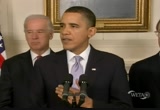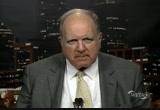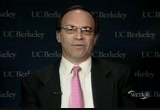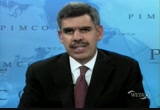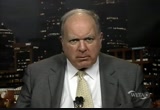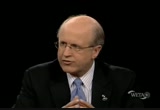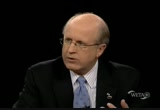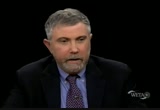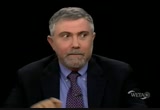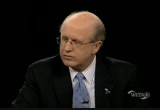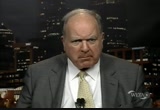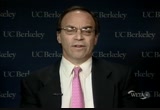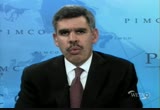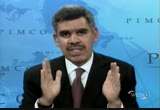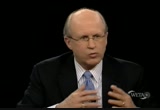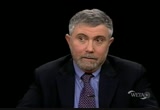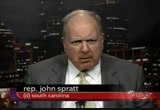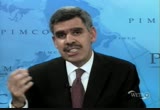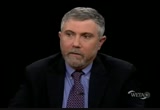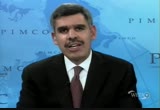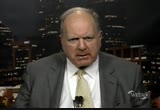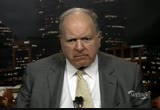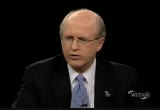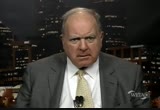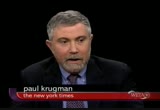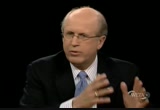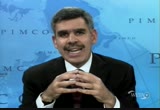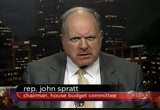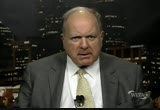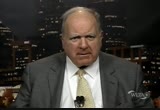tv Charlie Rose PBS February 18, 2010 11:30pm-12:30am EST
11:30 pm
though people close to him tried to shoo these people away, marvin eventually sought them out, or at least accepted their overtures. irene: and they would come night and day. and i think that's what upset father, was the traffic. they had no respect for marvin's father or his mother, they would come at 2:00 in the morning. the girls would be in the garden screaming "marvin, let me in!" there was a lot of tension in the house, and it was building within father, because he seemed to be fighting with mother more, and then marvin was building up, too, because he was getting sicker and sicker. dyson: he's addicted out of his mind. the drugs are making him absolutely kooky. he's paranoid. he believes everybody is out to get him. irene: and just, things that came out of his mouth, that you knew were not marvin... it was like the devil almost, inside of him. ritz: one of the great ironies of marvin's life is that he created his own story.
11:31 pm
he manipulated the elements to end in a way that seemed to him to be inevitable. narrator: the day before his 45th birthday, marvin gaye, whose entire life had been marked by conflict, willfully violated a sacred covenant that would finally free him from his demons. ritz: and it all began because marvin's dad was yelling at his mother earlier in the day. and marvin said, "i don't like the way you're talking to my mother," and you have the escalation. and then marvin finally just beat his father up, which he'd been wanting to do that his whole life. pops and he was in his father's room, and his father kept a gun that marvin bought for him. west: bishop gaye stood in that doorway, and pointed that gun while marvin was staring at him. mother gaye said he shot him one time, and he started to slump. and he slumped down on the floor, mother gaye say he shot him the second time.
11:32 pm
man: soul singer marvin gaye has been shot dead at his father's home in los angeles. from los angeles, steve futterman. man: according to the police report, the father took out a handgun and shot marvin gaye three times. he was pronounced dead on arrival at the hospital... robinson: i was driving home listening to the radio, and the disc jockey interrupted the program to say, "soul singer" -- i hear it in my mind like it happened today. "soul singer marvin gaye" was pronounced dead on arrival at the hospital. so now i don't buy this. my heart... my innards won't let me accept this. so i get out of my car, there's a phone booth right there. and i go to the phone and i call anna. and i say, "anna, this is smoke." and she said, "yeah, baby." i didn't even have to ask her. she said, "yeah, baby, it's true... his dad shot him."
11:33 pm
what? what! [ "yesterday" playing ] ♪ mmm-mmm-mmm ♪ aw, yesterday ♪ all my troubles seemed so far away ♪ sears: marvin died long before he was shot. by that i mean he was spiritually drained. he was just so tired. weston: "i brought you in this world and i'll take you out of here," is a saying that we were brought up with where the average parent in our community never allowed a child to stand up to them. marvin knew that if he put his hands on his father, his father was going to retaliate. taylor: marvin wanted to go. marvin didn't want to be here anymore.
11:34 pm
♪ oh, why did she have to go? ♪ ♪ i don't know ♪ tell you, i don't know, the little girl wouldn't say ♪ ritz: i think he was driven by his demons and by his angels. he was driven by some need to reconcile the two... and he never could. dyson: marvin's body was a billboard for his spiritual struggle, and the war was waged on the battlefield of his mind and his spirit, which is the very quality that made his music great, but the very vulnerability that made his life hell. ♪ now i need a place ♪ to hide away wilson: i always felt that marvin was an angel. he came, he did what he needed to do, and... and he left us a great musical legacy. ♪ now i need a place to hide away ♪
11:36 pm
♪ who really cares? ♪ who's willi to try? ♪ save our sweet world ♪ help, somebody ♪ save the world, save the world ♪ ♪ save the babies, save the kids ♪ ♪ save the childr, yeah ♪ oh-oh ♪ here we go [ scatting ] "american masters" is made possible by the national endowment for the arts, because a great nation deserves great art. and by the corporation for public broadcasting.
11:37 pm
11:41 pm
rose: welcome to the broadcast. tonight, the debt and the deficit of the united states. more and more people are concerned, and we talk about it with paul kurgman, the noble laureate and economics professor at south carolina, and mohamed el-erian, c.e.o. of pimco and alan auerbach, an economist from the university of california at berkeley. the state of the u.s. economy, debts, deficits, budgets, and more. next. ♪ ♪ if you've had a coke in the last 20 years, ( screams ) you've had a hand in giving college scholarships...
11:42 pm
and support to thousands of our nation's... most promising students. ♪ ( coca-cola 5-note mnemonic ) captioning sponsored by rose communications from our studios in new york city, this is charlie rose. >> rose: the fallout from the economic crises has brought one issue to the forefront of the nation's political and economic agenda, that is the deficit and the country's public debt burden, as entitlement programs have grown and as trillions have been spent to dom bat the
11:43 pm
recession, concern about the country's fiscal health have peaked. the congressional budget office projected that total debt this year would climb to nearly $9 trillion or 60% of gdp, the highest level in years. president obama today establish add bipartisan commission to bring the country back to fiscal responsibility and stability. the president acknowl
11:44 pm
towards fiscal reform and fiscal responsibility. >> joining me now is a group representing a range of views on this pre of pimco, the worldest largest bond fund. and from the university of california, alan offshore balk. here in new york with me, paul krugman, economics professor at princeton university and recently wrote in his "new york times" column that fear mongering about the deficit distorted the public's understanding of the issue. also with us david walker president and c.e.o. of the peterson foundation, a group that calls for fiscal
11:45 pm
responsibility. he has long service in the government dealing with important fiscal issues. let's do some definitions as we begin. when we talk about the deficit and when we talk about the debt, the federal and the national debt, tell me what we mean. >> well, the deficit is the extent to which the government is spending more than it's taking in in the way of revenues. the debt is what accumulates after you have done a number of years of that. so the debt is the amount of money that the government owes. the deficit is the extra money the government has to borrow this year which adds of course to the debt. it's like -- actually i don't want -- analogies with households are pretty bad. the government is not like a family. but you know, in a family if you're spending more than you're earning you run a deficit and you run up some debts at the bank and that's your debt. but the government is not like a family. >> rose: is there an acceptable range of which a deficit should be as a
11:46 pm
percentage of gdp and debt should be as a percentage of gdp? >> it's not really easy to come up with simple numbers on that. i mean, in emergencies, you do want to run deficits. various kinds of emergencies, an economic emergency like we're having now, a war, we ran deficits that hit about 28% of gdp during world war ii which would be $3 trillion if we were doing it right now, more than that. we had debt that was more than 120% of gdp, much much larger, double where we are now at the end of world war ii. so you can have pretty high numbers. the real question is always does the long run add up. do you actually have a story which will enable the government to pay the bills under a plausible future evolution of policy. that's the question. you can't just say here is a number, that's a bad number, that's the red line. >> rose: i mentioned the word fear mongering which you have used. you believe this debate has been
11:47 pm
what? >> i think it has been hijacked by people who really want to stop us from doing things to create employment now. and it's political. the deficits have ballooned under the watch of the current empty and they're the party will do anything they can to bring the current president down but people look at the numbers now and say oh, my god look at all of that red ink, which is not the problem. the problem is not what the numbers are now. the problem is what do we think it will look like over the next couple of decades. for that what the deficit is this year matters quite little. it only matters insofar as it's a precursor, ass it gives an indication of where we're going, and the things we're doing right now have little to do with the causes or solution of the longer run deficit problem. >> professor auerbach, put the whole thing in context for us so we can understand what we ought to be talking about, both the historical moment as well as the challenge that faces us.
11:48 pm
>> well, as paul mentioned, we had a higher debt-to-gdp ratio at the end of world war ii. but the difference in that period to know, as he said, is what we face in the future. one can think of these as implicit liabilities. they don't show up as part of the national debt but they're a much bigger problem. and they represent commitments that the federal government has made. so simply controlling the national debt or not going above a debt-to-gdp ratio in the near term that is higher than we were after world war ii isn't a satisfactory solution, because at that point we will be facing exploding entitlement programs that we have no means to pay for. and markets understanding that will not wait until our debt-to-gdp ratio gets that high. if we have no credible answer to the misalignment of revenues and spending that we face on our
11:50 pm
11:52 pm
deficit. >> rose: speak to the commission idea first of all. the president thought he would be able to create a different kind of bipartisan commission and the republicans did not support it so he is doing this by executive fiat. >> charlie, clearly it would have been preferable to have a statutory commission because that way you would have gotten by in from the congress and the president and the only way you can get a vote on the commission's recommendations is if it's a statutory commission. on the absence of getting the required number of votes in the senate, you got 53 rather than 60, then the president has stepped in and shown leadership and i commend him for that and he has worked with the democratic leadership in the senate and the house to try to help ensure that the commission will receive its
11:53 pm
recommendations. that's easier for sperm pelosi to than this for majority leader reed because he doesn't control 60 votes. but clearly the deficits that will exist once the economy is growing, once unemployment is down, once the wars are over. that's what threatens the ship of state and it's going to take a commission and some type of special process to make those tough choices. >> rose: the tough choices that have to be made are what? >> first we will have to reimpose tough statutory budget controls once the economy turns around, tougher than the ones that we have back in the 90s. we will have to reform social security which is easy to make it solvent and more savings oriented. we will have to reform medicare and med compared and focus on health care costs. we will have to reform our tax system and generate more revenue and do all of those things. there's waste in defense. there's waste in homeland security. we will have to go after that, too and make progress on
11:54 pm
multiple fronts at once and before our foreign lenders lose confidence in our own ability to put our financial house in order. >> rose: pick up where you want to. >> the way i look at it's, there are really two things in the are top of the line. everything else is secondary. first is health care. nothing works unless you can get health care costs under chrome. look at all of those projections that show federal spending going through the roof with gdp and very little of that is the aging of the population. demography is much overrated as a problem. >> in this country. >> yes. we still have children in this country. exactly. so it's really -- it's about -- you have to bring health care costs under control and if you do that, then you're still left with a fairly sizable gap but not a huge one. it's the kind of thing that almost truly, the bulk of it has to involve raising more revenue.
11:55 pm
you know, the united states is the lowest taxed nation among the major economies. if we move to moderately higher taxation, there will be endless negotiation about what that will take. that plus health care cost control brings us in striking distance. then we can talk about others, and social security is high on the list. we're spending quite a lot of money to keep soviet tanks from going across germany and that would help. >> health cares is the real issue but we have to reduce health care costs and reduce the rate of increase in health care costs, and the latest health care reform debate was really not about that. the latest health care reform debate is how do we expand coverage and pay for that expansion of coverage? we have $38 trillion in uncovered promises in medicare alone. we have to make tough chases,
11:56 pm
like budgetary control like every other industrialized nation, looking for premiums for people that are well off that sign up for medicare part b and part d. it's tough stuff that frankly is difficult for liked officials and that's why we're going to have to a special process. >> just a moment about health cares because we can get lost in it. was the probably that the senate passed, was it deficit neutral? >> depends on who you ask. the cbo scored these bills, but they had all kinds of caveats. they had all kinds of concerns that they raised as to whether or not the assumptions that were contained were reasonable and whether they were sustainable. in my view for health care reform to be fiscally prudent it should meet four tests: pay for itself over 10 years. not have deficit beyond 10
11:57 pm
years. third, result in a significant reduction in the tens of trillions of unfunded promises that we already have. and fourthly, result in lower health care costs as a percentage of the economy than we would have had we not do the reform. the bills don't pass that. >> i want in here. let me say, i actually think the cbo was underwaiting the amount of the savings of the bills. these bills basically try all of the things, and we don't know which those are going to work and how well. so the cbo scores those things as zero because it says it doesn't know. bust the odds are some of those things would work. i think there was a -- both the senate and house bill are the most serious cost control efforts we have ever made. if we can get something like those through at the end. it will make a big difference. >> if we don't.god help us. we will have failed because
11:58 pm
largely of a square campaign about medicare and death panels which will make any future reform -- >> some that he came to office and that she should not have gone for health care reform in the beginning, even though it had this cost benefit, deficit reducing benefit, that he should have focused on jobs. did the president make a mistake? >> once again, i think you can do both things at the same time. he was spending political capital on the jobs bill, the recovery act that he probably could have spent on the health care bill. but, look, he couldn't not deal with the economy. at the same time, he had a substantial outstanding programs to do something about health care reform. by the way, he agreed with us complete le and stipulated in his budget and we stipulated in
11:59 pm
the budget resolution whatever was done had to be neutral over a 10 year period of time and the cbo scored that as saving $250 billion. you could have proposed other things that i think would have added to the bill. i think the prohibition that the republican leadership put on the negotiation of pharmaceutical drugs, the negotiation of prices, barge bargaining for better prices is indefensible and i think there should have been a complete repeal of that language in the health care bill. but bills like this are seldom done in one sitting. i think it will be revisited numerous times before it is in effect. and the bill is full of efforts to reduce costs, implement efficiency through information control. and stressing prevention and wellness. will that work? we don't nope. but it's the biggest effort the
12:00 am
government has made in that direction ever and it could pay off in the long run. i'm mit gating the cost not only for the medical care program but the memory care system in the country. somethingd to say about the neutrality of these bills. the house and the senate raised revenue in ways unrelated to health care, through taxes, in one case an increase in the medicare payroll tax and in the other case an increase in income taxes on high-income individuals, in both cases fargted higher-income individuals, which is not necessarily anything wrong with that, it's just that, as has already been discussed, the long deficit problems thank the we have require increased revenue combined with tax reform and you could only go to the well a certain number of times. if you're going to rely on higher taxes and more progressive taxels and taxes --
12:01 am
to deal with our future problems you're stealing from the pot by trying to use it to pay for health care reform.ef you can't use those revenues twice. even if it's true on paper that the house and the senate bills were revenue neutral or even reduced deficit what's, that's taking into account use of revenues that might have been used for another purpose and these are scarce resources. more over, some of the ways of reducing costs that were in the bills are things that we can't have any confidence would be sustained such as cuts in med cared reimbursement.ur these are things that have been overridden in the past when they have been in law, and so while on the one hand we might save more money through some cost saving measures that are in the bill than the cbo estimates, we may also be overly optimistic in expecting that some of these very unpopular cuts will be sustained in the future.
12:02 am
>> charlie, it's important to have a few principles out there because part of this debate gets hijacked not only by fear mongering but also a lot of details. why sit we want -- it's the means to an end. and the ends is growth. u matily we look for financial stability and fiscal stability because it's a means to an end. if we go back 12 months ago, the biggest issue is that we collectively, and washington in particular, underestimated the head winds facing employment creation and growth. if we had correctly estimated that the unemployment rate was going to go up to 10% and in much higher, 17% if you take into account the underemployed then at that point there would have been been a bigger focus on
12:03 am
growth. if we could have got enthe economy moving 12 months ago we could have dealt with this sequentially but we didn't. today we are torn between two objectives, one is employment and growth. and the other is dealing with a debt stock and a deficit that is stubbornly high. both elements have become structured in nature. we have a small window through structural measures to try to address both issues: there will be a time consistency issue and there's still a window if we can get agreement to address both issues. if we don't, in the year's time, the unemployment issue will be worst, the deficit will be worse and at that point we will be forced into the other corner solution which is deal with the fiscal situation first. so one cannot underestimate, charlie, the urgency of moving quickly because the degrees of freedom are going down month after month, given that we have
12:04 am
two problems, unemployment and the deficit and not just one. >> let me bring it back to the table. >> ok. actually, i have many things to say. so let's start.ta let me give you my broughter take, which is that the united states does it u worse than anybody at controlling healthal care costs. we also are the ohm advanced country without universallalityl and that plus a lot of evidence leads me to believe that universallality, having coverage for every american, is that the core of dealing with health care. we don't get there -- you cannot push through, even with the cost saving measures that will in the house and senate bills without them being tied to a promise of health insurance for all.ll so there's a reason why you have to do it this way. yes, it looks like there aree extra costs of covering the
12:05 am
current uninsured but this is the only route we will ever take a rational look at our health problems. >> david. >> i believe we need universal coverage. i think it'sout range this country doesn't have it. bust i think we need to have an honest discussion and debate with the american people about what is appropriate, what is affordable, what a sustainable. when you listen to the american people, a lot of things they tell you is -- we need help against -- it's the number one cause of bankruptcy in the united states. secondly it's in our societal interest to have wellness because you need as big of a pool as you can to do that. we have a tendency in this country to want to give people a lot middle eastern we can afford and sustain.in we need a budget on health# ca. yes, we need universal coverage but not make more promises we can't keep.
12:06 am
you're right about some of them. some are optimistic, some are pessimistic. why not one that says if certain things don't have -- we can guard against unrealistic assumptions. and short-term is not the problem. to get to do more deficit down in the short-term. >> some kind of stimulus.st >> some kind of stimulus. and john pratt iss. right, you n do two things at once.e. if you do it the right way, we can deal with our short-termer problem but this commission has to help us deal with the trurl structural problem that threatens our ship of state. >> do you think if the president and members of the congress went to the american people and said we have to talk common sense to you, if you want services we have to create more revenue and you have to therefore tax you more. if you want these services both
12:07 am
in terms of national defense and in terms of social services, you have to pay for them. that argument would sell? >> don't underestimate the difficulty of selling it but look, for the talks to be successful, for negotiations for this committee to succeed, everything has to be on the table and everybody has to be on -- everything has to be on the table and everybody has to be at the table. and learning, looking back to 1997, when we did the balanced budget agreement of 19 9/11 and putt the budget in balance for the first time in 30 years, of the key was that the president was, in effect through his proxy, present of at every meeting we had. jack l. ge was there. it's important that the leadership support both parties, so i think the president is absolutely correct to put together this commission to try to find common ground. >> worldwide we are starting to
12:08 am
see a reprizing of sovereign risk. crises are starting to move. it is most visible in countries that don't have the ability to sustain high debt, where there's been a rapid increase. the curb is steepening is and there's also a recognition that fast in some cases in grease and slow in other cases but the market is starting to reprice the sovereign west and that will reprice everything else because sovereign risk is at the center of all. so you get a couple of things that is feeling this debate and the concern that you're seeing out there.th >> rose: ok. >> i'm extremely hesitant to argue with pimco about bond prices. >> go ahead, go ahead. [laughter] >> my reason has been that those u.s. long-term interest rates
12:09 am
have been burning one one one and there's no sign -- what they're reacting to is gradually improving the economic news leading people to believe the date when ben bernanke moves it off zero is getting closer. c i don't see anything in that data. we don't look like greece. we don't look like spain either. people are up because we have had good news. >> take note. the front end is being held by the fed at zero. and the concerns are starting to mount. what you're starting to see is the stheppening but the growth is not as strong as people indicated originally. >> that's not how i read the data. long-range dates went up today, the date that we are taping
12:10 am
because the philly -- there was optimism not pessimism. >> we have 1.7 trillion in the market. interest rates do not go up, which i think is a totally unrealistic assumption over time based on the sides deficits that we're talkingng about. >> and banked on what bernanke -- >> we can debate how quickly and fast but here is the key. even if they don't go up, the single largest line item in the federal budget within 12 years will be interest on the federal debt. larger than defense. larger than medicare. larger than social security. what do weit get for that? nothing. and we have all agreed that they're going to go up. we can debate when and how muchm
12:11 am
>> ok. >> i'm really -- i really hate that calculation.ti i share your concerns. i really hate that calculation.i take the obama budget, i happen to know the numbers. it. says in 10 years we will be spending 3.5% of gdp on interest payments. when did we last do that? when george bush was president. it wasn't catastrophic then and it isn't now. those interest payments -- if that is all that is going to happen, we could handle it easily is whether there there does come to see the united states as being greece. >> you said those people who hold a lot of american debt are beginning to get nervous because we're not handling our deficit very well and, b, they therefore, not that they unload, but they have but in fact they
12:12 am
stopped coming to buy our debt. is that a real possibility? >> it is not an immediate possibility. so i agree we're not greece but let's understand why we're not greece. we're not greece because we supply what are called local public goods. we have something other people want and it cannot be replaced. the dollar is in deep financial markets. you not replace something with nothing so there's nothing to step in at this time. but if we continue to abuse the physical situation, if we're unable to promote growth, if we're unable to promote employment, the rest of the world will start having more and more questions. it's not an overnight issue but it is a gradually rotion that becomes difficult to count over time. >> how do you see the urgency of
12:13 am
the issue and the danger to america's reputation in the world? >> i think we all know that somewhere there's a wall. beyond which we cannot easily go. the holders of our debt will conclude that they have been saturated with dollars and they have all of the portfolios they want. they either start selling what they hold or coming to the sales to buy more. i would like to say as a practical politician going back to net interest on the national debt. this year it's $188 billion. 10 years from now it's $720 billion. david was right. this is a problem politically for us in the sense that i have to go back -- explain to them why therapy taxes -- that's a problem. handle theou problem?
12:14 am
well, you have to address it. as i said, the president's budget takes the deficit down 1.5 trillion to 700 manage dollars over four years. kitting the deficit over a four and a half year period of time but at that point it peters out. and i'm happiful the commission can provide that effort to take the to a much better relationship of debt through gdp. ing that theanyth president is not doing that you want him to do? either to say or to do. >> i think the president has done what he should have done with respect to the commission. i think this commission is going to have every bit as much influence and effect as a stat torpz commission would have had, so long as the leadership on soth sides of the the clear the
12:15 am
sperm and the minority plerd personally pledged they have see to the commitment that this so-called budget would make recommendations in december would be voted upon. one thing that we would have had with a statutory bill with a stattory bill to fast track -- t >> i have two concerns about the commission that i hope the president is going to address. one, he has talked about the goal is to achieve primary balance by 2015. he has talked about the need to do something beyond that. we clearly need to be looking at the growing structural deficits that get worse with the passages of time.me we have to look at trying to stabilize debt-to-gdp at an appropriate level. secondly, the only way that congress will be able to make the tough choices that they have to make on social security,, health care and taxes is if the
12:16 am
american people outside of the beltway are engaged in a meaningful way. that's going to have to be done by people that are capable and kribl to the american people beyond the beltway.y. that depends on who he has on the commission to do that. t >> he's off to a good start with bowles and alan simpson. >> i agree with that. >> i was in congress in 1983 when we did the social security bailout. which made the system solvent for another 50 years. and the key to that was not the commission. it was not even alan greenspan as president of it, it was jim baker. the key votes, the key decisions were made -- not really made, were around the living room. you need that relationships. when he does release the
12:17 am
prevention, as it is, the executive order calls for observations and thoughts and proposals without proposing that they be reduced to legislation when it comes to entitlement issues. >> go ahead. >> i wasah going to say, it's - the problem is not with what the president is doing or not doing. the problem is with the state of our political discourse and there's only so much he can do there. try to think, let's find a figure who is universally respected that stopped. there's no such figure. >> the hardest thing to confront our leaders in terms of coming to grips with the problem is that the real problem is in the future. implicit liabilitiesie that we have now but they're not showing up in the current deficit. so if the economy improves and the deficit starts to go down, as this committee is going g through it's deliberations,, people will look and say why do
12:18 am
we have to do any of this? the point is, the time to act is now, even if these problems start piling up in the future. as i said before, you can't change it very quickly.ly you need a long lead time to take care of these things. so the biggest pay off in terms of budget rez form will be through measures that only take effect gradually over time and have a big effect in the future. those are things for which i think it's very hard to make a case to people who aren't really involved in the process and understand it.ta >> isn't this part of the problem, that some of the governments and people aroundro the world take a look and say i don't know if they're capable of dealing with their problem and therefore i wonder if their best days are behind him? >> sure. that is the risk. the thing to bare in mind, it has nothing to do with the five year budget. >> rose: it has everything to do with theg capacity to solve problems and legislative
12:19 am
solutions. we haven't really made a major move of any sort in this country on domestic policy for years. or tax reform. >> people by in large don't vote. we haven't done a big thing. and this is the problem but i'm not sure that creating a commission solves it or makeses much of a dent in it? >> obviously you said there's no one human being live in americaa that you think as the credibility to provide of the kind of leadership that congressman spratt said jim baker did. >> i think the crazies need to lose a couple of election. if you look at buys partisanship in america, it is really the 30 -- when they realized the new deal would not be overthrown.ve >> rose: if you take be about
12:20 am
the people of massachusetts, can't say they were crazy because they voted the way they did. >> you need a situation where irresponsible rhetoric actually loses people in elections. that has not been the case in america for a while.wh >> >> what does that say about us? >> that's a problem.ro >> i have been to 46 states doing town hall meetings. there are a couple of reasons why the american people are overly concerned right now. number one, we have gone from billions to trillions. just like in the 1930's, we went from millions to billions.s. and secondly, it's the off balance sheet calculations.la it's no the our current deficitc or debt. it's the fact that when you add in the unfunded promises that were made this country is in a 60 trillion-dollar hall. >> in pensions and health,
12:21 am
that's three times when george bush became president. the debt has doubled since 43 came president.nt we have a dysfunctional democracy and the part sanship, it's the etiological dwight is more in the center of mected representatives are on the polls and you can't get a deal done. d >> what is the answer to that. t >> the answer is that it will special processes to get political reform, in the area of redistricting and campaign finance and other things that will take more time in order to help heal our dysfunctional democracy. >> it's not that democracy has become dysfunctional. it's really that we're going through a paradigm shift.
12:22 am
we have a seen a 20% increase in the debt to gtdp raisch yop. we have seen water at levels that were unthinkable and this is in a system built on the assumption that unemployment cannot stay high for a long time. that's why our safety nets are so week. we have seen major questions being raised about institutions, about the fed, about the banks. theres is a paradigm shift. if you look at how symptoms cope with paradigm shift. they had diffqjlt. because most of the time paradigms manage well through checks and balances to maintain the equilibrium. when the paradigm gets and paul can par more about it, to being hostage to their prior internal comment commitments.
12:23 am
you do something but it's really doing more of what you have done before. the way we see it, not only in the united states but the paradigm shift has taken the system by surprise and the system is still trying to adapt and react. and i think it will take time. and i don't think as much a question of the democracy no longer functioning as it is that tems or any systems don't deal well with paradigm short.sh >> before people answer that what are you referring to, making sure i understand you, the paradome shift that you're talk be at. >> i'm talking about there were things that happened that were uncountry thibl. it was unthinkable that we would have a 20% increase. it was unthinkable one in six would be under or unemployed. it was unthink about the dwawlt
12:24 am
would come down from 3%. the system is now trying to react to that. just look -- let me take another example and show you where the insist sees are. look at debate on the banks. in the morning we will argue that the banks are not lending enough. that's correct. they're notct lending enough. in the afternoon we will argue that the banks pose too muchh risk for the system and we need to derisk the banks. there's insist sees all over that speak to a paradigm shift that has occurred and the system as a whole is not average i'm enough as yet. it will be. but it's not naj isle as of yet to inasmuch gate through that. >>th i disagree with david aboua fair number of things but one thing david has been doing, he has been campaigning for years on the need to do something and our inability to do something about the long run budget picture and while i hate that
12:25 am
60 trillion-dollar calculation, i think that isio misleading but the fact of the matter is, we were dead stuck on health care reform, on medicare reform, on the long run budget issues before anything mohammed started talking about started. s >> talking about entitlements. >> we were. people like alan, they were warning us about it and we knew about it but the political process wasn't diehling with it. it's not as if we had a functional system and we lost our bearings.gs we never had our bearings to begin with. that's not the problem.. now we are failing to deal with mass unemployment and failure to deal with the long run budget economic. >> we need some kind of major political, trojcal reassignmentg there has to come a back where
12:26 am
the -- >> you thought that was happening with president obama but do not think so now. >> john spratt, comment on that, would you? >> well, the problem now is that with the may not that we have got, particularly on health care, five votes in the house, one vote in the senate, it's very difficult to make the best of decisions. because sometimes those are the toughest decisions thank the you have to make. you need a working majority so that you can afford to lose a vote here and lose a vote there and still adopt amendments and changes to your legislation that are good solid policy. let me tell you one other thing i say to my democratic caucus when we're trying to pass a budget resolution, referring to the incumbents about what the rest of the world thinks of us. if i tell them, if you can't budget, you can't governor.
12:27 am
that's the way it is looked upon. do other true parliament trisystem is it particular live a condition or rule of the particlement if they fail to pass the budget it's a call for dissolution of the government. and frankly we should be held accountable to what we do to a far greater extent than we are. >> and how would you create that? >> the american public needs to inform itself about conditions that we're dealing with. this is a very difficult issue to discuss. it's lead enwith numbers and concepts and jargon and doesn't always get the clearest coverage in the immediate -- media. as one who went from civic club to civic club with his budgent speech and seeing people i can tell you this is not easy. e
12:28 am
>> people can get it. look. think back to the movie "thelma and louise." right? we're in a car headed for a fiscal cliff. it's not the current data. it's where we're headed.. we need to do something too change course. this country is not going to default and people are asking what about will the dollar be worth and how much risk is there. >> there's a gap between -- you have been preaching this sermon, you and pete peterson for at least 10 years, right? >> well, pete for 30.fo >> and you for 10.fo >> right. r >> it's the same. if we don't deal with -- >> we did it now and they're starting to see it in public opinion polls.. starting to see anytime elections. >> massachusetts was not a republican for the republican. >> it does not say therefore i'm expecting to see thanks changes in the leadership.
12:29 am
>> that's whyad you have to spek the truth, talk about the tough choices, help them understandan you can't having for nothing and help them understand the moralal aspect of this. we are mortgaging the future of our children grandchildren and expecting those two young to vote and those not born yet to pay the bill and that is improcedural. >> i want to make the clear the people i repeat, people in the carolinas in particular, are concerned, deeply concerned about the deficit. rightly or wrongly they see it as something wrong in government. and they see gm brought to its knees, virtually insolvent. aig and all of the other biggs failures and they say this is just a praise lewd of what could happen to our country. >> a lot of this lies -- people are frightened by deficits
1,316 Views
1 Favorite
IN COLLECTIONS
WETA (PBS) Television Archive
Television Archive  Television Archive News Search Service
Television Archive News Search Service 
Uploaded by TV Archive on

 Live Music Archive
Live Music Archive Librivox Free Audio
Librivox Free Audio Metropolitan Museum
Metropolitan Museum Cleveland Museum of Art
Cleveland Museum of Art Internet Arcade
Internet Arcade Console Living Room
Console Living Room Books to Borrow
Books to Borrow Open Library
Open Library TV News
TV News Understanding 9/11
Understanding 9/11












